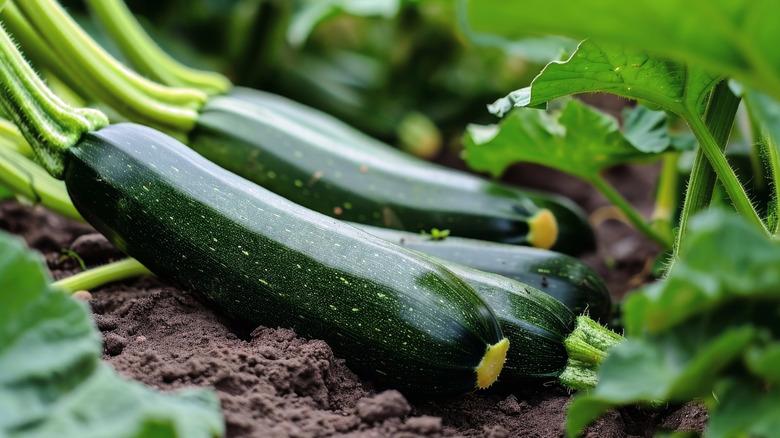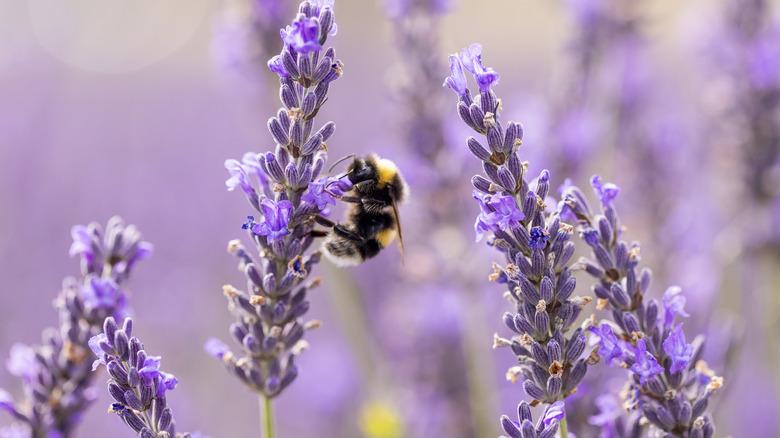Your Zucchini Will Flourish Alongside This Purple Companion In The Garden
Zucchini (Cucurbita pepo) is a popular plant for home gardeners, and it's easy to see why. It's extremely versatile in the kitchen; it can be used as a vegetable side dish, stuffed with meat for an entree, as a low-carb substitute for noodles, and – most importantly – snuck into baked goods to trick your kids into eating their greens. Also, zucchini is easy to care for and very high-yielding. It grows in USDA zones 3 through 11, prefers neutral, moist, and well-draining soil with loam or lots of organic matter. Zucchini thrives in full sun, needing at least six hours a day. One packet of seeds can potentially produce a huge bounty, and those in warm climates can get both a summer and fall crop.
The one downside to being such a large producer is that beginner gardeners may stick with only one zucchini plant, knowing it will provide all they need for the season. This puts a lot of pressure on the summer squash to perform. That's why companion plants, such as lavender (Lavandula angustifolia) are so important for ensuring your zucchini's survival.
What is a companion plant?
Companion planting is the practice of growing plants together than offer each other benefits, which may include deterring pests, attracting pollinators, nourishing soil, and providing shade. In addition to zucchini, lavender acts as an excellent companion plant for fruit trees, flowers, and other vegetables, mainly due to its ability to repel pests. This herb can be grown in USDA zones 5 through 10, where it prefers full sun and well-draining soil — very similar conditions to zucchini.
We may love the smell of herbs like lavender, mint, and basil, but bugs detest it! Simultaneously, lavender attracts helpful insects, such as bees and butterflies. Bees will pollinate not only the lavender, but any nearby plants, including your zucchini. Lavender also happens to be beautiful, it smells lovely — plus, you can use it in the kitchen, of course. It has medicinal properties and has historically been used to help alleviate anxiety, insomnia, and depression. Like zucchini, it's easy to grow and maintain lavender.
Other ideal companion plants might include nasturtium, radishes, dill, marigold, and beans as companion plants for zucchini. Since there are many great options for zucchini companion plants, choose one you will most enjoy in its own right, and not just as a bodyguard for other plants.

